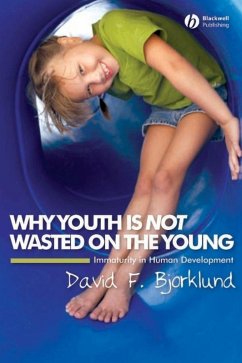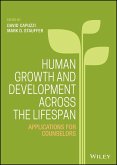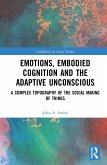Why Youth is Not Wasted on the Young examines the nature of childhood through an evolutionary lens and argues that childhood is an essential stage of development with its own unique purposes, separate from those of adulthood; a time of growth and discovery that should not be rushed. * Written by a renowned developmental psychologist * Examines the role that our period of immaturity plays on the social, emotional, and educational needs of today's children * Challenges common perceptions of children as simply "adults in training"
Dieser Download kann aus rechtlichen Gründen nur mit Rechnungsadresse in A, B, BG, CY, CZ, D, DK, EW, E, FIN, F, GR, HR, H, IRL, I, LT, L, LR, M, NL, PL, P, R, S, SLO, SK ausgeliefert werden.









